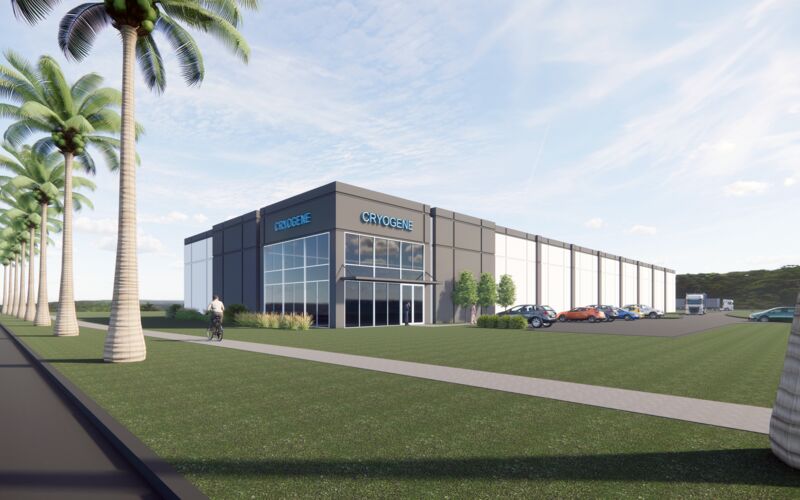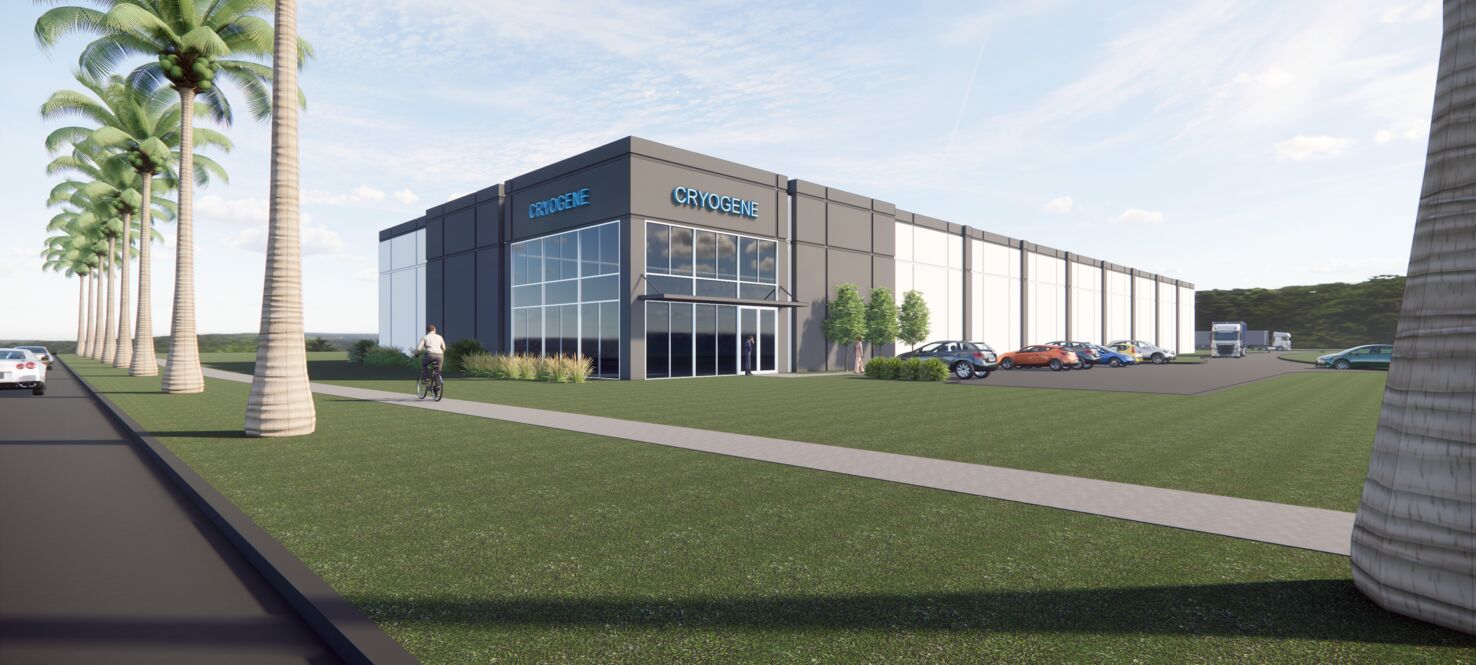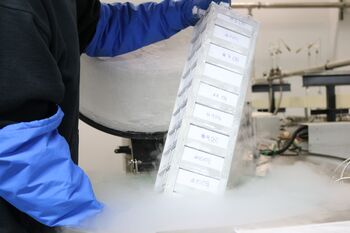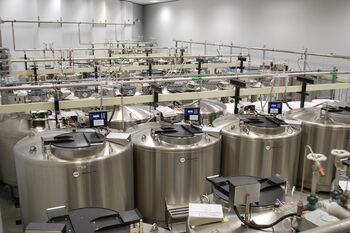Moffitt Bringing Deep Freeze Temps to the Sunshine State
Below freezing temperatures are coming to Moffitt Cancer Center’s SPEROS FL.
The cancer center announced it’s bringing Cryoport, Inc.’s CRYOGENE to the 775-acre campus in 2026. The new biorepository will make the storage and management of biological specimens safer and easier, helping the Pasco County campus expand patient treatment and research in cell and gene therapies, immunotherapies, radiopharmaceuticals, proton therapies and other technologies and treatment pathways.

“Our goal is to make Speros the cell and gene therapy capital of the world,” said Patrick Hwu, MD, president and CEO of Moffitt. “With the addition of CRYOGENE, we will accelerate discovery by igniting collaborations and partnerships across disciplines to bring new therapies to patients faster and save more lives.”
The 30,000-square-foot facility will be included in the initial phase of the development of Speros and located near the 250,000-square-foot Moffitt Discovery and Innovation Center, giving Moffitt researchers direct access to their samples and accelerating discovery.
Moffitt has stored biospecimens since 2006 with its Total Cancer Care protocol.
A biorepository is a critical resource for cancer research and cutting-edge therapies like cell and gene engineering. Biospecimens stored in a biorepository include tissue, blood, cells, saliva, urine and nucleic acid collected from patients. These biospecimens require rapid preservation and exact temperature control of storage conditions to ensure they are safely stored and can be used in future research.
Moffitt is no stranger to ultra-low temperature storage having collected hundreds of thousands of samples over the last quarter century through its Total Cancer Care protocol established in 2006.
While biospecimens are are typically stored within -80 degrees Celsius freezers, many Moffitt researchers prefer storing them in liquid nitrogen, which offers even lower temperatures at -170 degrees Celsius. This ultra-low temperature is desirable because it offers the best condition to prevent sample degradation. The biospecimens can then be used for a variety of purposes relating to clinical, basic or epidemiologic research.
The new CRYOGENE facility will offer secured storage in temperatures ranging from 23 degree Celsius to liquid nitrogen -200 degrees Celsius. It will also provide a central, consolidated storage location to make transport, access and management of biospecimens easier.
CRYOGENE will provide Moffitt with liquid nitrogen -200 degree Celsius storage.
“This partnership not only advances Moffitt’s mission but also strengthens Speros’ reputation as a life sciences hub,” said Sabi Singh, chief operating officer at Moffitt. “The ability to offer cutting-edge infrastructure like the CRYOGENE biorepository will help us draw top-tier talent and forge new collaborations with academic, clinical and commercial partners.”
The CRYOGENE facility represents a pivotal step in Speros’ first development phase. By addressing the logistical challenges of research and clinical material management, this biorepository will accelerate the pace of discovery, attract global partnerships and solidify Speros’ role as a leader in life sciences innovation.






